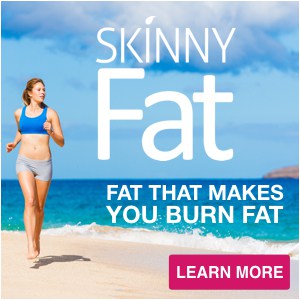Nutrition in the News: Learn how you can reduce sudden cardiac death by 63% and avoid diabetes?
This edition of Nutrition in the News features two current articles that indicate that small changes in your habits can make a big difference in your overall health.
The Link Between Sauna Use and Improved Cardiovascular Health
Our first piece shares pertinent data for all of you men out there that would like to reduce your risk of fatal cardiovascular occurrences. Be honest men, that would include all of you – right? The study published in, JAMA Internal Medicine, reports that men that regularly relaxed in a sauna were less likely to suffer sudden cardiac death (SCD), fatal cardiovascular diseases (CVD), and fatal coronary heart disease (CHD). That’s right, all they did was relax in a sauna – simple right? This extraordinary study conducted in Finland consisted of 2,315 men between the ages of 40 to 60 years old. The results indicated that the more sauna sessions the men enjoyed per week the lower the risk of these fatal cardiovascular events. The study showed that when compared with the men that used the sauna only one time per week, the men that spent 2 to 3 sessions per week in a sauna lowered their risk of SCD by 22 percent, their risk of CHD by 23 percent, and their risk of CVD by 27 percent. It gets even better, again when compared to the men that used the sauna once a week, men that relaxed in a sauna 4 to 7 times a week lowered their risk of SCD by an amazing 63 percent, their risk of CHD by 48 percent and their risk of CVD by 50 percent. The amount of time spent in each sauna session also proved to be of benefit, when compared to the men that utilized the sauna for less than 11 minutes at a time, those that stayed in the sauna for between 11 to 19 minutes lowered their chance of SCD by 7 percent and for those that remained in the sauna for more than 19 minutes per session the risk was reduced to 52 percent. Similar results were seen for fatal CHD and CVD as well. Additionally, the study indicated that the amount of time spent in a sauna reduced the risk of all-cause mortality in general.
Now, while this study was just on men, it would stand to reason that women would benefit from sauna sessions as well. This past August we wrote the article, Detoxification Our 1, 2… Punch, where we examined some of the incredible benefits of detoxification and the use of saunas. As we stated in the article, heat therapy, or saunas are an ancient method of cleansing the body used by numerous cultures around the world for centuries. Sauna use allows the body to release toxins caused by our environments that can:
- Aid in weight loss
- Improve how our immune system functions
- Prevent chronic diseases
- Can slow down premature aging
- Increase energy and improves overall quality of life
- Improve skin appearance and health
- Enhance our mental and emotional clarity
So what’s stopping you? Here’s proof that simply relaxing in a sauna, perhaps at your local gym or YMCA, may save your life one day.
Vitamin D: Your Best Defense Against Diabetes
Our second study today has us reexamining the connection between vitamin D sufficiency and our chances of becoming diabetic. Diabetes is the 7th leading cause of death in the United States. Approximately 30 million Americans have diabetes and that number is growing everyday. Diabetes can cause damage to your eyes, heart, kidneys, and many of other bodily organs, and over the years, research has strongly linked diabetes to obesity. However, a new study recently published in, Journal of Clinical Endocrinology & Metabolism, claims that diabetes may be linked to a vitamin D deficiency. In this study 148 participants were categorized as lean, overweight, obese, or morbidly obese according to their body-mass index (BMI), as well as if they already had diabetes, were pre-diabetic, or had no glycemic disorders. Vitamin D levels were then measured in the subject’s blood, and by the vitamin D receptor gene expression in adipose tissue. Upon analysis research indicated that the obese participants that did not have a glycemic disorder had higher levels of vitamin D then their diabetic counterparts. Similarly in the lean subjects that had diabetes or other glycemic disorder researchers found that they had lower levels of vitamin D. As this study suggests diabetes and other glycemic disorders may actually have more to do with our level of vitamin D than whether or not an individual is obese or lean. Could it be as easy as this? Could being sufficient in vitamin D help millions of people around the world avoid diabetes? Well, according to this study, a micronutrient sufficient lifestyle may just be your best defense against developing diabetes. (Are you micronutrient sufficient? Find out by taking our FREE Micronutrient Sufficiency Analysis – Click Here)
Here are some interesting facts regarding vitamin D that we listed in, Naked Calories:
- Vitamin D is the only vitamin that can be derived from both food and sunshine however getting enough vitamin D may still be difficult.
- If you live anywhere on the planet on a latitude north of Atlanta (approximately 33 degrees north), it’s impossible to produce vitamin D from the sun during the winter months.
- People with fair skin need to be exposed for at least ten minutes a day to the midday sun wearing no sunscreen and at most shorts and a tank top, in order to get the RDI of vitamin D.
- The levels of vitamin D in a mother’s body while she is pregnant matters more than all the vitamin D in the milk her child will drink in the first nine years of life.
- Dark-skinned individuals and the elderly don’t produce vitamin D as efficiently as those younger and fairer.
The fact is that most of us don’t get enough vitamin D. We slather ourselves with sunscreen and we don’t eat enough wild caught fish, eggs from pasture raised hens, or organic unpasteurized milk. Because of this, vitamin D is one of the essential micronutrients that most people need to supplement with daily. The good news is our multivitamin nutreince contains 2000 IU of vitamin D, which is the amount most experts are now recommending. Does yours?
Want to see how your current multivitamin stacks up to nutreince? Click Here to take our FREE Multivitamin Stack Up Quiz.











